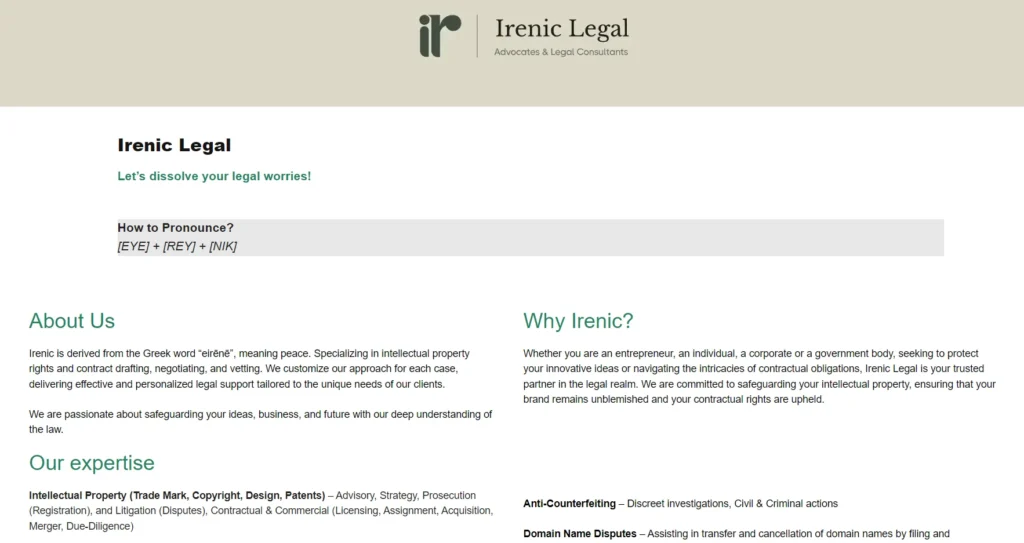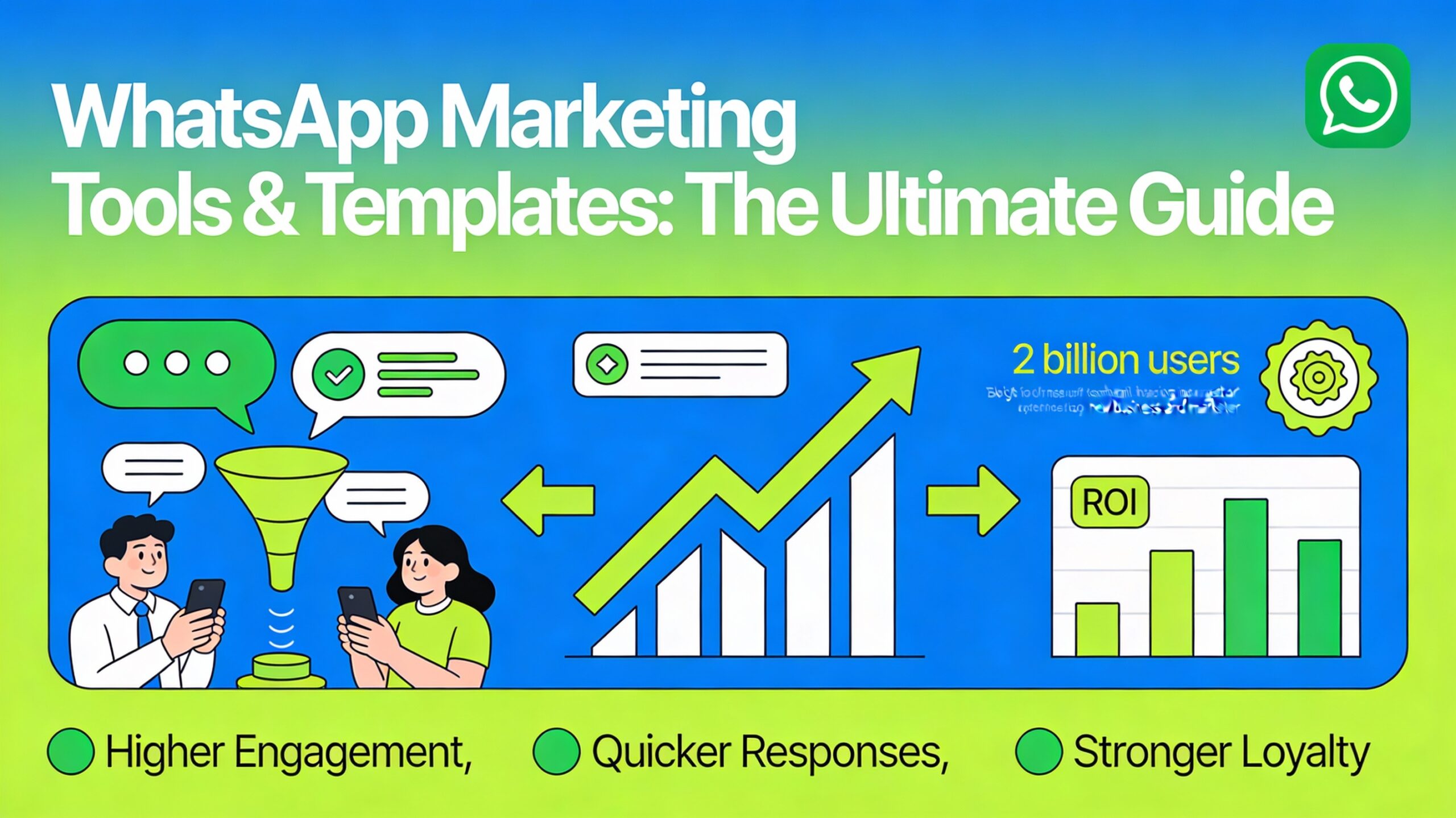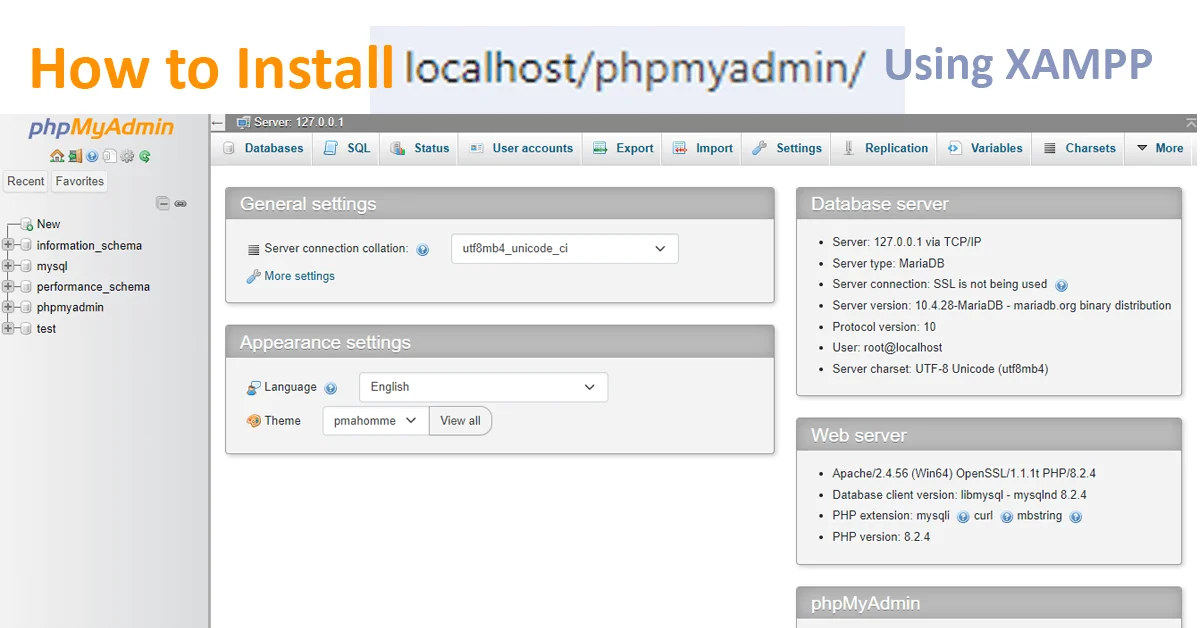It is easy to share views and discuss about the successful business but hardly anyone talks about the steps to start a new business. Having a good business idea is great, but it is just more than important to have a good execution strategy to succeed in 2024.
As per the Forge Fusion, 90% of startups fail in the first 5 years of their operation. Just because people are unaware of the basics of business. Things they need to do, people underestimate the work required to build a successful business.
In this article, I will walk you through each stage of the process, providing you with resources, insights and tips to help you launch and succeed in your business with confidence.
Steps to Start a Successful Business in 2024:
Numerous steps are involved in laying the groundwork for a successful business venture. From finding the right idea to navigating legal requirements and establishing a solid customer base.
Finding the Idea:
An entrepreneurial journey begins with an idea. The idea can be to start a new thing or improve an existing one. Look for opportunities in areas you are passionate about, where you identify unmet needs, or where you identify underserved needs.

It all starts with an idea!
– Earl Nightingale, American Speaker and Author
Often, you don’t need a totally new idea to start a Business. You need an idea that works better, is faster and/or cheaper. There are tons of business opportunity ideas that are trending in 2024. It is not limited to Offline or Traditional business, there are some Best online business opportunities that you can push yourself to think of.
If you are still not sure which business suits you the best. Here are some AI tools that you can use to generate an idea using free AI tools to generate ideas. You can go with the:
Validate Your Business Ideas:
Once you have shortlisted some business ideas, idea validation is the next step. The goal of idea validation is to understand the business opportunities and risks. Learn the steps to Identify a Successful Business Opportunity and Take your time in the process.

Conduct thorough research on the topic and find out if there is a need for your product or service in the market. Research the things you have assumed in the idea stage.
Through the steps in the above article, you will have a practical and better understanding of your business idea.
Validating a business idea is a key step before you start your business journey. Without proper and structured market research on the topic, it is impossible to understand the risks and opportunities.
Evaluate your business’s strengths, weaknesses, opportunities and threats through a SWOT analysis. To learn How to Perform a SWOT Analysis, you can refer to the blog by mindtools.com.

A few important things to validate your ideas are:
- Define Market Size: This helps you understand how big an opportunity is and if there is a need. You don’t want to enter a business that has a tiny market size as you may not be able to generate any profit.
- Checking out the competition: Unless you have discovered something completely new, it is almost impossible to not have any competitors. Learn about them, understand what they are doing, and how you can differentiate from them.
- Understanding your Target Market: If the answer to “Who is your customer?” is “Everyone is my customer”, then you don’t know who your customer is.
Whatever your business idea may be, everyone cannot be your customer. Start by defining the demographics, income, age and more. - Does Your Business Solve A Problem: Think about what pain points will you solve for your potential customer. Pain points can be financial, lifestyle-related, process-related, or more. This can be your Unique Selling Point (USP) going forward.
- Will People Pay For It: “An idea is just an idea until you have a paying customer attached to it,” said Wil Schroter, co-founder and CEO of Fundable. If Yes, then how much is your potential customer willing to pay? Is the amount sufficient to cover your costs?
Everything you do before you actually register the company comes under the Idea Validation phase. Try and find statistics, numbers and facts for everything you do in this phase. The more thorough your research, the better understanding you will have of your business.
Tip #1: Don’t Get Lost in the Idea
Beware of the confirmation bias in play during the idea validation phase. Confirmation bias is when you interpret and favour information that confirms your beliefs and assumptions and ignore contradictory information.
You need to separate yourself from the idea and be honest and neutral when you research. Think of it like you are researching for a friend, not yourself.
Conduct a Survey before starting a New Business:
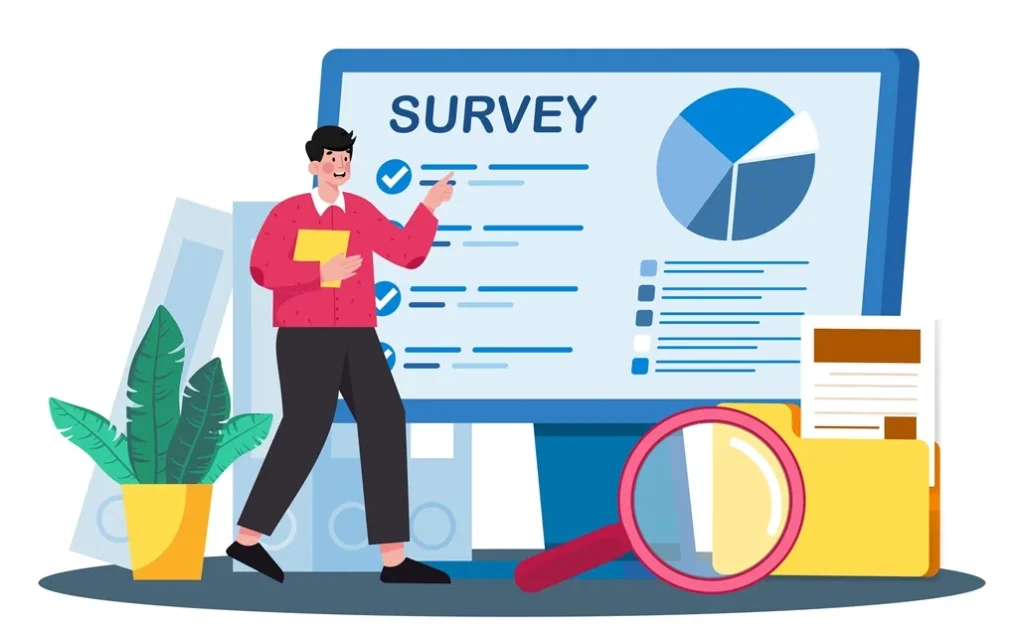
Now that you have done your research and defined your target market, the next step is to conduct a survey. It is a crucial part of understanding your customer needs and their problems.
Gather valuable insights from your target audience. Create a list of questions you want for your customers on Google Forms and run a Facebook ad asking for people to fill out your survey.
Through Facebook ads, you can target your research to your target audience and have a better understanding of your customer needs, by conducting an Online Survey. You may be surprised to find that your customer needs differ from your assumptions.
More important than conducting a survey is to understand the results of it. Carefully analyse the answers as it is direct feedback from your potential customer. Understand what they need and if they will be willing to pay for your solution. Tools you can use to create and run surveys:
- Google Forms: The easiest way to create and share forms.
- MailChimp: Best to conduct a survey when you have a mailing list or data on your potential customers.
Tip #2: Understanding a survey
Customer Surveys are important but not always accurate. Do not take all answers by heart and try and understand the underlying meaning in the results of a survey.
Make a Business Plan

A business plan is the Google Maps of your business. Not only to investors but a business plan also helps you steer and navigate through each step of starting and managing your business.
The purpose of a business plan is to understand the business opportunity, the plan of action and how much time/money you will need.
In the idea phase, you have done most of your research. Now it is time to sit and bring all the information in a systematic plan. It ensures you don’t miss important information.
Don’t think of a business plan as a hurdle, because it is not. It is a stepping stone to a successful business.
Resources you can use to develop a business plan:
- Investopedia: To understand more about a business plan.
- Smartsheet.com: For a Lean Business Plan
- Harvard Business Review: For a Detailed Business Plan
A well-defined plan will serve as a roadmap for your business’s growth and sustainability.
Tip #3: A Business Plan is like a Jigsaw Puzzle
Don’t worry too much about making a perfect business plan. The purpose of your first business plan is for you to have more clarity.
You have researched extensively in the idea phase, and now you need to gather all the information together.
Find a Creative and Practical Name for Your Business

You probably have some creative ideas and names that you love. But naming a business is more than a name you like. A good business name is memorable, stands out and aligns with your business identity.
Also, No pressure, but to avoid endless paperwork and rebranding, you should not change your business name once it is registered. Changing a business name is not as easy as you might think!
There are more than 1.62 Million registered companies in India (Source: livemint.com)! So how do you find a creative and memorable name?
You need not worry, I will help you find a business name that you love! First, here are a few tips and things to take care of when deciding on a name:
- Do not pick a name that is similar to or the same as a registered company, or your competitor.
- Find an easy-to-pronounce name. You can also do a little wordplay like using “z” instead of “s”, but make sure it is easily recognised.
- Do a domain name search for the names you like.
- Don’t forget to do a social media check for your name. You will most likely need a page on Instagram, Facebook, Twitter and LinkedIn. Make sure at least some variant of your name is available.
- Don’t choose names like Delhi Garden Co. It limits your expansion options.
You can also refer to the article “How to Come Up with A Business Name” by wordstream.com for a detailed process to name your business.
There are also some cool AI Tools that help you generate ideas for your business name:
The above tools open your mind to numerous options and are a good source of inspiration. They will generate thousands of names for you to go through.
Tip #4: Find Inspiration in Movies and Mythology
Movies and mythology are great sources to explore new names. Maybe it is your favourite character or an underrated sidekick, find characters that relate to your brand identity.
Design a Logo

I personally really enjoy these creative phases in the business journey. It is fun and a good break from the research phase. Before I start going too off-topic, let’s first find out, what is a Logo?
In the simplest terms, a logo is a design or a symbol that will identify your company. It is how your company will be recognised among others.
Different companies use their logo in different ways. Some like Amazon use it to make a statement. The smiling arrow from A to Z signifies happy customers and that they sell everything from A to Z.
Some like Facebook use the letter “f” to represent friends and Facebook. The point is that a logo can be used in different ways, it does not necessarily have to convey a deeper meaning.
If you are not a designer, the best way to design a logo is to hire a designer or outsource it. Here are some recommendations and tools:
- The Banana Collaborative: A UX/UI freelance designer who can help you with designing your logo, your brand, your website and other related services. You can trust them with all your design needs.
- Upwork: It is the best platform to hire designers, programmers and more on a contract basis. In our experience, Upwork is a little more expensive than other similar platforms, but the results are much better.
You can also use some AI Tools to give you ideas for your logo. Our top recommendations are:
Tip #5 Logo is Important, BUT i t is NOT Everything
Some things to keep in mind when designing a logo. A logo is not your brand or your visual identity. And neither it is an indicator of success. People tend to spend so much time in the process that they forget there are other things too.
Trademark Registration Requirement for New Business:

Now that you’ve successfully shortlisted a few names for your business, it is the perfect time to share that list with an Intellectual Property Rights (IPR)/Trademark Lawyer.
A trademark lawyer can assess the registrability and narrow it down to the most suitable name as per law.
But what is a Trademark and why do you need to register it?
Your name, logo, or brand image that can be used to distinguish your products and services from that of your competitors, is called your Trademark or Intellectual Property (IP).
An IP or trademark registration helps you protect your Intellectual Property Rights. It ensures that no one in the market copies or impersonates you and your brand.
You work day and night to create a brand and deliver the best products and services for your customers. Imagine, one morning you see that another company with the same or a deceptively similar name and logo is stealing your customers, profit and reputation! What a nightmare, right?
Although it is not mandatory, to avoid this nightmare becoming a reality, we strongly advise you to register your business name and logo.
We registered our trademark from Irenic Legal LLP and would recommend them for their professional, fast and efficient services!
Tip #6: MSME/Udyam Registartion
Register your company as an MSME with the Government of India to avail of MSME benefits and a discounted price for Trademark registration. It is a simple and free online process and should be taken advantage of.
Warning #1: Hire a Trademark Lawyer Only
You might be tempted to get your registration from your CA or CS, but they are unaware of the Trademark Act and miss out on important elements. I had to file my registration twice because of this.
Types of Business Registration in India:

Now that you have done your research and finalised a name, registering your company is the next and mandatory step to start a business.
There are 7 different types of company registration in India. You need to decide what best suits your needs and goals. Another decision, I know right?? 😛
I hope you are not overwhelmed, as this is only the beginning.
Following are the different types of company registration in India and a little information about them:
- Sole Proprietorship Registration
This is the easiest and most lenient way to start a business in India. Legally speaking, you, the owner and the business are considered the same entity. - Partnership Firm Registration
As the name suggests, you can register your business as a partnership firm when you have a partner, that is, you need a minimum of 2 people to register. This is relatively less complex than other types of registration mentioned below. - Limited Liability Partnership (LLP) Registration
This is similar to a partnership firm, but it offers legal protection and stability to the partners. For example, the partners are not liable for liabilities of the firm (like debt and credit) beyond their agreed contribution. - Private Limited Company Registration
A Private Limited Company provides better protection and security as the personal and business assets of the owners are considered separate. It is especially useful when you want to raise funds via equity in your company. - One Person Company (OPC) Registration
OPC is a single-owner Private Limited Company. It is a great option for entrepreneurs who want to have full control of their business and get the benefit of liability protection. - Public Limited Company Registration
A Public Limited Company has the maximum legal requirements to follow. You can trade company shares on the stock market and issue shares to the general public. An organisation chooses this option to raise funds from the public and expand. - Section 8 Company Registration
Non-government organisations (NGOs) working for a charitable purpose take this path of registration. The primary purpose of such organisations is to promote arts, sports, religion, environment, social welfare and more.
The above information is just to give you an idea and you will need to consult a professional Company Secretariat (CS) to register your company. They will understand your requirements and suggest you accordingly.
You can connect with Komal Gupta, who handles all our CS-related work and we recommend her for her prompt and accurate services.
Tip #7: Create Your Social Media Pages Before Registering Your Company
You should buy your domain and create your social media pages before getting your company registered. This is because when you register your company, your information is made public and someone else might buy the domain and create a social media page before you do!

Open a Bank Account

The next step after you register your company is to open a Current Account in a bank. It is needed to separate your personal transactions from transactions associated with your company.
Like everything today, you have too many options to choose from. You can either open a bank account with a public sector banks like State Bank of India (SBI), Canara Bank, etc or choose a private sector bank like ICICI, HDFC, Kotak Mahindra and more.
Banks are really competitive today and therefore offer similar services. If you have a good relationship with your existing bank, in which you have your personal account, look no further and go for that bank.
Otherwise, you have another decision to make. You should consider the following when looking for a banking partner:
- Proximity: I suggest that your home bank branch should be either close to your home, your office or at least on the way to your office. Although most banking services are online, you may still need to visit your branch for some or other reason.
- Minimum Average Monthly Balance (MAB): This is the most crucial thing to consider especially when you are starting. You need a maintain a MAB to avoid bank charges.
In most cases, it is INR 25K for private sector banks and INR 10K for public sector banks. (Please reconfirm this with your bank) - Support to Government Loan Schemes: If you plan to apply for a no-collateral loan through a government scheme (like the CGTMSME scheme), ensure that the your bank supports it.
- Online Banking Security, Facilities and Limits: Most of your transactions will now be done online, and you need to ensure that you can do so, easily and safely.
Tip #8: Public or Private Sector Banks
Private Sector Banks have a better services and systems than Public Sector Banks. But if you want to apply for Government Loan Schemes, Public Sector Banks have an easier process and less bank charges.
In my experience, State Bank of India which has competitive services as private banks and are friendlier to Government schemes.
Goods and Service Tax (GST) Number Registration in India
As per the GST Act, if a company’s annual turnover exceeds Rs. 40 Lakhs (and 10 Lakhs in some states), the company needs to register of GST Identification Number (GSTIN).
GSTIN is a 15-digit unique alpha-numeric number assigned to every registered GST company.
You can also voluntarily apply for a GST Number even if you are not legally required to do so to avail the benefit of Input Tax Credit (ITC) on the GST paid on expenses and purchases.
Other benefits of obtaining a GSTIN include legal recognition of business, restriction-free trade across states, online and e-commerce trade, avail business loan and more.
Along with its advantages, there are several disadvantages of obtaining a GSTIN as well like the increased costs of software and compliances.
To apply for a GSTIN, you can reach out to a CA. They will help you register for a GST Number and also help you navigate through the accounting compliances. We recommend CA Anshuman Mallick, Partner at JC Bhalla. He has a huge team that can also help you expand overseas if needed.
Business Contracts

A contract is a legal agreement between two or more parties (like a person, business entities, etc) that lays out the relevant obligations, responsibilities and duties towards each other.
In other words, a contract defines the relationship between two or more parties by laying out the scope of work and the conditions of the relationship.
For instance, a partnership agreement is a business contract that defines the following things
- Agreement of two or more people to work together.
- Responsibilities of all partners towards the new business entity.
- Share of each partner in the business, and more.
Although a contract can be both written and oral, it is always preferred and sometimes required to have written contracts as it minimizes the risk involved and has more value before the law.
Why do you need a written contract?
As a business owner, you will be required to sign some compulsory contracts like a partnership agreement, bank agreements, etc. These contracts need to be properly read and understood as these will lay the foundation of your business.
Other contracts that you might need are the ones with your suppliers, your customers (especially for B2B), your distributors, employees, and more. You can choose to be in oral agreements with all, but in most cases, it leads to unsatisfactory results in case of disputes.
In the short term, you may not feel the need, but written contracts provide transparency and clarity that leads to long-term business relationships. Moreover, written contracts minimize the risks and conflicts for both you and the other party.
Important contracts you will need when you are starting your business:
- For Incorporation of Business: Partnership Agreement, Rent Agreement, No Objection Certificate, and other contracts suggested by the CS or CA.
- Employment Agreement: Between you and the employee.
- For website and e-commerce store: Privacy Policy, Terms of Use, Disclaimer, Return, Refund Policy, etc.
- Between suppliers and distributors: Memorandum of Understanding (MOUs), Profit Sharing Agreements, Franchise Agreements, etc.
You can use AI Tools like ChatGPT to write down a basic policy when you start, but when you grow you will need to consult a Contracts Lawyer like Irenic Legal LLP to define these policies as per your requirements and protect your interests (and business).
You can reach out to Irenic Legal LLP for all types of contracts.
Warning #2: People Change, But Contracts Don’t
We underestimate the need for contracts when things are starting and we are ecstatic about making it big. It is only when some conflicts arise and we find ourselves arguing about what was agreed upon and what was not, that we realise the importance of written contracts.
Government Schemes for Businesses
To promote and support businesses in India, the Union Government of India (GOI) has launched numerous schemes.
The Government understands the difficulty of starting and establishing a business. To ease their burden and encourage people to start a business, the GOI has launched schemes that help small businesses in training, access to marketplaces and raise funds.
The top 3 schemes that I feel are most useful:
- Credit Guarantee Trust for Micro Small and Medium Enterprises (CGTMSME)
To boost the startup industry, the Government launched the CGTMSME Scheme which is a non-collateral MSME loan of up to Rs. 5 Crore. The loan amount can be used for working capital requirements, debentures, term loans and more. - Support for International Patent Protection in Electronics & Information Technology (SIP-EIT)
As the name suggests, this scheme supports MSME and Tech startups through financial aid and procedures for International Patent filing. - A Scheme for Promotion of Innovation, Rural Industries and Entrepreneurship (ASPIRE)
The objective of this scheme is to promote and accelerate innovation in the Agro-Industry.
For a detailed list and more information on available schemes, you can refer to the Startup India website and a blog by Lexology.com dedicated to Government Schemes.
Tip #9: Find Ideas through Schemes
A great way to look for new ideas is to go through Government schemes and see which industries the Government are promoting the most. It is always good to align your company with Government spending as it ensures Government support and chances are that the industry will grow faster.
Hiring Talent Brains for your New Business:

Business is not a one-person job and you will need a solid team to add value to your skills and experience. I understand the process of hiring can be overwhelming, and you will make mistakes, but it is something you will have to do today or tomorrow.
But before hiring, I suggest you make an organisation chart for your company. While making this chart, you have to imagine your company structure at least 5-10 years from now.
Now, define the job roles for each role, like CEO, Marketing Manager, Technology Manager, Chief Financial Officer, HR, etc. Also, estimate the number of employees working under each leadership role. Refer to the example below.
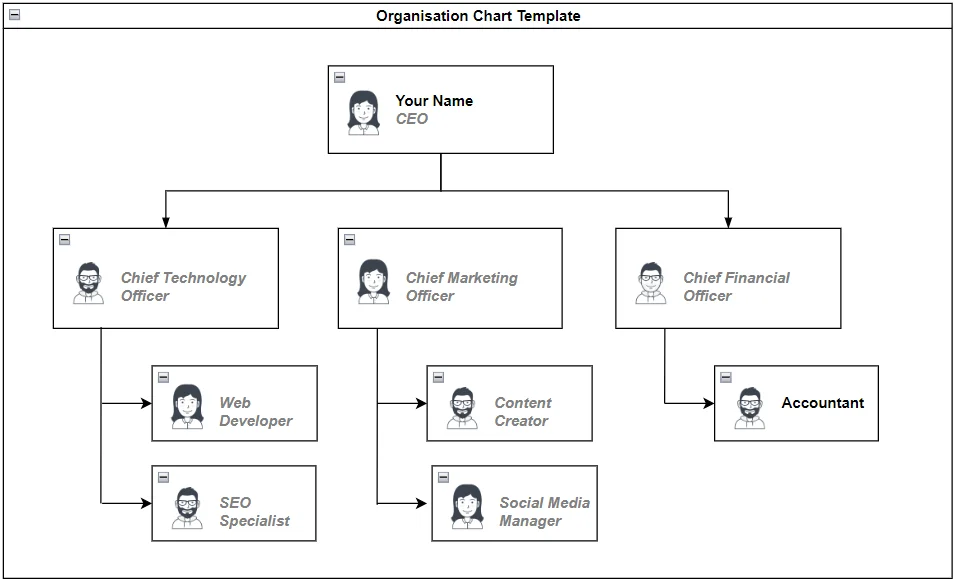
The next step is to write your name (and your business partner’s name, if applicable) under the job roles you will manage today and mark the job roles you will need help in. This process really helped me understand what positions I needed to hire for today and later when the company grew.
The next step is to find people who fit the required job role and will be good for your business. The approach to hiring is different when you are hiring your first employee and when you are adding a new member to the team.
When you are hiring the first few employees, you not only look for the skills required for the position but also for the qualities of a team leader, who can take forward the culture you want to create in your business.
You can refer to the blog ismartrecruit.com for The Top 9 Tips for Hiring Great Employees.
There are several online platforms you can use to post for a job and start building your dream team. The top platforms are:
- Indeed : You can post a job for free.
- LinkedIn: It is expensive, but you get the maximum number of job applications through it.
- Shine by HT Media Limited.
- Cutshort : Especially for tech-related job roles.
If Customer is King, then Employees are the Army. Don’t hurry the hiring process, and take your time in assessing the right candidate who can build your business empire with you.
Tip #10: Go Through Job Posts of Other Companies
Research the job roles you are looking to hire for. Take note of the salary offered by them and their job description. It will help you understand the market salary and help you define the job requirements for the positions you are looking for.
Conclusion:
Starting a business requires careful planning, timely execution and continuous learning. By following the steps outlined herein and tapping available resources and support networks you can navigate the complexities of entrepreneurship to form a lasting enterprise that thrives long term.
Keep this in mind as every journey starts with one step – take that leap with confidence and enthusiasm, embrace its challenges, and embark upon your entrepreneurial adventure with strength and resolve!
Remember that tomorrow belongs to those who dare dream big dreams while acting upon ambitions they hold close.
Good luck on your entrepreneurial adventure.




